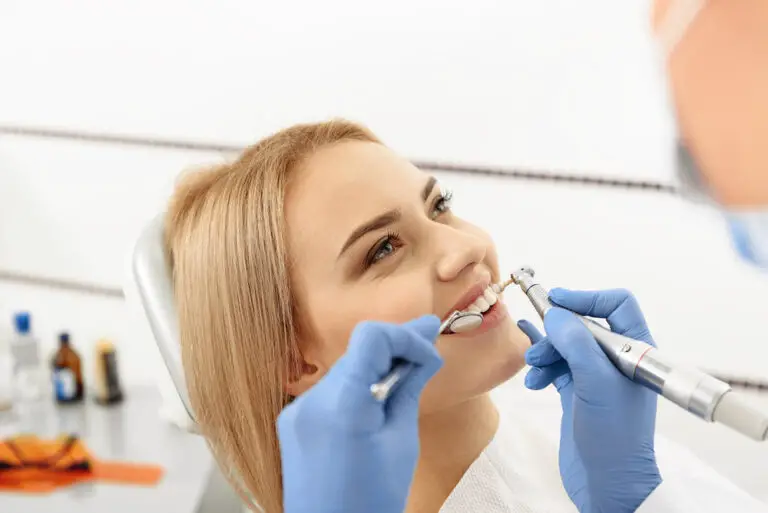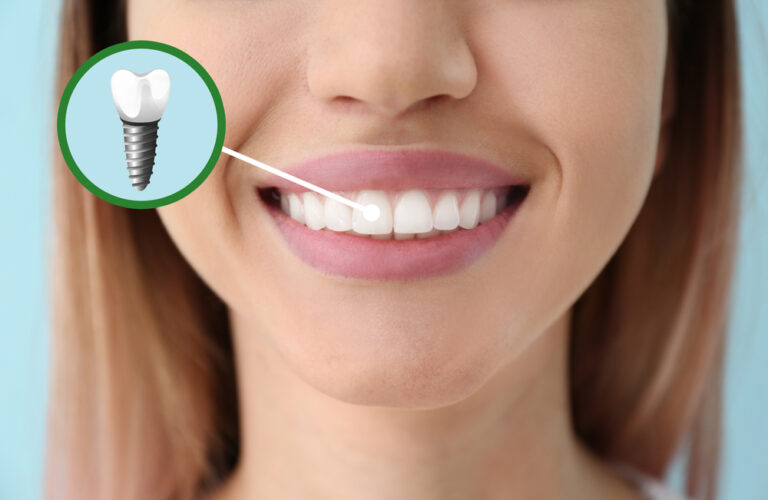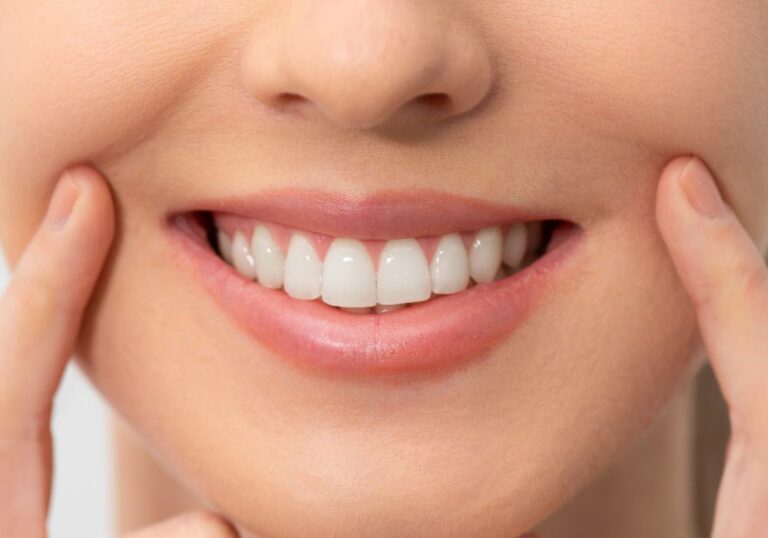Even though pregnancy is the happiest time for most women, this condition may carry unpleasantness and additional health issues. The reason is that the body and habits change, causing dental problems. That is why paying particular attention to dental care and hygiene during this period is crucial.
For some reason, many women believe visiting the dentist during pregnancy is unsafe and harmful. Such a belief often causes confusion and doubts, particularly among first-time moms. The answer to the common question can you go to the dentist while pregnant when facing dental problems is YES, you can!
Dental Problems During Pregnancy
If you plan a pregnancy, dealing with any urgent dental issues before you get pregnant would be best. Prevention, dental hygiene, and regular visits to the dentist before the pregnancy are crucial and can prevent or at least reduce dental issues you can have during the pregnancy, including:
1. Gum swelling and bleeding (gingivitis)
This dental health condition is caused by increased hormone levels, particularly during the last trimester. In that period, your body shows a higher inflammatory response, increasing the amount of plaque and bacteria in your mouth. They stick to the teeth, release toxins and provoke infections of the gums and bones.
2. Cavities
As your body and its chemistry change during pregnancy, you can also notice in your mouth. The hormone levels, vomiting, or increased sugar intake can raise acid levels inside the mouth, causing tooth cavities. Although cavity development typically takes a long time, increased acid levels during pregnancy speed up decay.
3. Tooth wobbling
During pregnancy, you can experience tooth wobbling because of temporary loose bones and tissue in your mouth. If you are facing these symptoms, talk with your dentist and obstetrician about other possible reasons that can cause this condition besides pregnancy.
Dental Prevention During Pregnancy
Prevention is always the best cure. Only adequate dental hygiene, regular dental checkups, and a healthy diet can keep your teeth healthy and save you from unpleasant dental treatments and possible complications.
In an ideal situation, your dentist and obstetrician are in contact and share information about your condition and applied treatments. Otherwise, you should be open with both doctors and talk with them in your best interest.
Dental issues, their causes, prevention, and type of treatment |
|||
| Dental issue | Cause | Prevention | Treatment |
| Tooth cavity | Sugar foods craving | Low-sugar food, dental hygiene | Tooth filling, root canal, extraction |
| Tooth enamel decay | Vomiting, high acidity levels in the mouth | Rinsing with water and fluoridated mouthwash | Tooth filling |
| Gingivitis | Disturbed hormone levels | Dental hygiene | Dental cleaning and oral antibiotics |
| Periodontitis | Untreated gingivitis | Timely treating gingivitis | Scaling, root planing, and antibiotics |
Follow your dental routine established before the pregnancy and intensify it during the following nine months. If the problem occurs, visiting the dentist as soon as possible is essential. They will gather all relevant information before starting the procedure, including your:
Expected delivery date – Your dentist needs to know what trimester you are in because some treatments are not recommended for the early pregnancy stage.
Overall health condition – You should inform your dentist about your current health condition, hereditary diseases, chronic health conditions, and possible allergies.
Therapy – Always inform your dentist about possible recommended pain treatment and medications you take during pregnancy.
Safe Dental Treatments During Pregnancy
Most of the regular dental treatments are safe during pregnancy. However, you should be careful and avoid some during particular pregnancy trimesters.
1. Root canal treatment
Root canal treatment includes cleaning the pulp and removing a nerve from the infected tooth’s root. Your dentist needs to eventually disinfect and seal the canal and protect your tooth with a crown or a filling.
This procedure is safe during pregnancy, particularly in the second trimester. It would help if you had an X-ray and a local anesthetic before treatment and got prescribed antibiotics and pain control medications as therapy afterward.
2. Tooth extraction
Once when tooth extraction becomes the only solution, your dentist will start the procedure despite your pregnancy. It includes applying local anesthesia to make the extraction painless, loosening the tooth, and pulling it out.
Tooth extraction is sometimes the only way to remove the source of infection and prevent its spreading. The second trimester of the pregnancy is the best for this procedure, but the trimester doesn’t matter if you have a real emergency.
3. Dental cleaning
This treatment is perfectly safe during pregnancy and recommended whenever needed. It includes removing dental tartar and bacterial plaque with a scaler around the gums and between the teeth.
Treatment also covers professional teeth cleaning, polishing, flossing, rinsing, and fluoride treatment. Regular dental cleaning is crucial since it is one of the ways to prevent periodontitis development.
4. Tooth filling
Dentists consider tooth filling a safe procedure during the second pregnancy trimester. It is a tooth decay treatment when your dentist removes the damaged tooth crown parts and prepares the area by cleaning and drying it.
Then, they apply the filling to the cavity and check whether it fits your bite. Consult your dentist about the recommended filling type and avoid dental amalgam fillings containing mercury whenever possible.
5. Scaling and root planing
Tartar removal and smoothing of the root’s surface are required to treat periodontitis. The recommended time for this procedure in pregnant women is the second trimester.
6. X-ray and Local Anesthesia During Pregnancy
You may have to take an X-ray during pregnancy for an accurate dental diagnosis and proper treatment. It is sometimes the only way for dentists to identify possible bone loss and a root canal treatment necessity.
Nowadays, it is considered a safe procedure because a modern lead apron and vest can protect you and your baby. However, the recommendation is to avoid exposure to radiation during pregnancy unless it is more than necessary.
Most dental interventions, including root canals, tooth extraction, and tooth filling, can’t be done without local anesthesia. It makes the dental treatment experience a bit more comfortable and pain-free.
There is no reason for concern about taking local anesthetics during the pregnancy. Those with epinephrine are safe unless the patient has an intolerance or an allergy to some of its components.
Medications During Pregnancy
The list of antibiotics considered safe to use during pregnancy includes:
- Cephalosporins (cephalexin and cefaclor)
- Clindamycin (cleocin, clindagel, clinda-derm)
- Penicillin (ampicillin and amoxicillin)
On the other hand, you should never use teratogenic antibiotics that can be potentially risky to your baby’s development, such as:
- Tetracyclines
- Kanamycin
- Streptomycin
- Sulfonamides
The dosage, antibiotic type, and how long you take them determine whether the therapy is safe or not. Your dentist will prescribe an acceptable and safe dosage when necessary and according to your overall health and pregnancy stage.
As with antibiotics, you should be careful with pain relief medications since they can be unsafe during pregnancy. Your dentist will prescribe the adequate one, depending on the pain type and severity.
Recommendations for mild pain are typically over-the-counter pain relievers. For instance, you can use ibuprofen, diclofenac, and naproxen during the first two trimesters of pregnancy, but avoiding them in the third trimester is crucial.
Paracetamol is safe throughout pregnancy, but Codeine is not. It is unlikely to feel severe pain after dental treatments requiring opioids, like oxycodone, fentanyl, diamorphine, buprenorphine, tramadol, meptazinol, or morphine.
Warning! Never take medicine without consulting your dentist or obstetrician, no matter how bad the pain is. Be aware that it is the only way to keep your baby safe.
Dental Problem Complications During Pregnancy
Regular dental care, checkups, and timely treatment are vital during the pregnancy. Be aware that untreated dental problems and infection can endanger both a mother and her unborn child.
For instance, hormonal changes often cause gum problems that may lead to gingivitis and periodontitis when left untreated. As a result, the condition worsens, destroys bones, recedes gums, causes abscesses, and finally leads to tooth loss.
Untreated bacterial gum infection may cause numerous pre-natal and post-natal complications after bacteria spread throughout the mother’s body. Besides, bacteria often colonize the mammary glands and pass to a breastfed baby later, jeopardizing its health.
One of the most severe complications of such a condition is premature birth. The reason is lipid prostaglandin, an inflammatory periodontitis mediator, which induces labor by imitating hormone action. In such a case, premature children can face numerous complications and later health issues, depending on how early they are born.
Untreated periodontitis can increase CRP after bacteria enter the bloodstream, triggering the liver to increase this protein production. Too high levels affect arteries, causing blood clots in the most severe cases.
In the worst scenario, arteries become inflamed and blocked, causing a heart attack or stroke and putting a mother and a baby at high risk. Additionally, CRP is often related to preeclampsia.
Summary
Despite established opinions, regular dental appointments and treatments during pregnancy won’t endanger you and your baby. On the contrary, caring for your dental health is crucial for a healthy pregnancy, smooth delivery, and excellent baby health. The only restrictions are too complicated procedures, X-rays, and some antibiotics.






